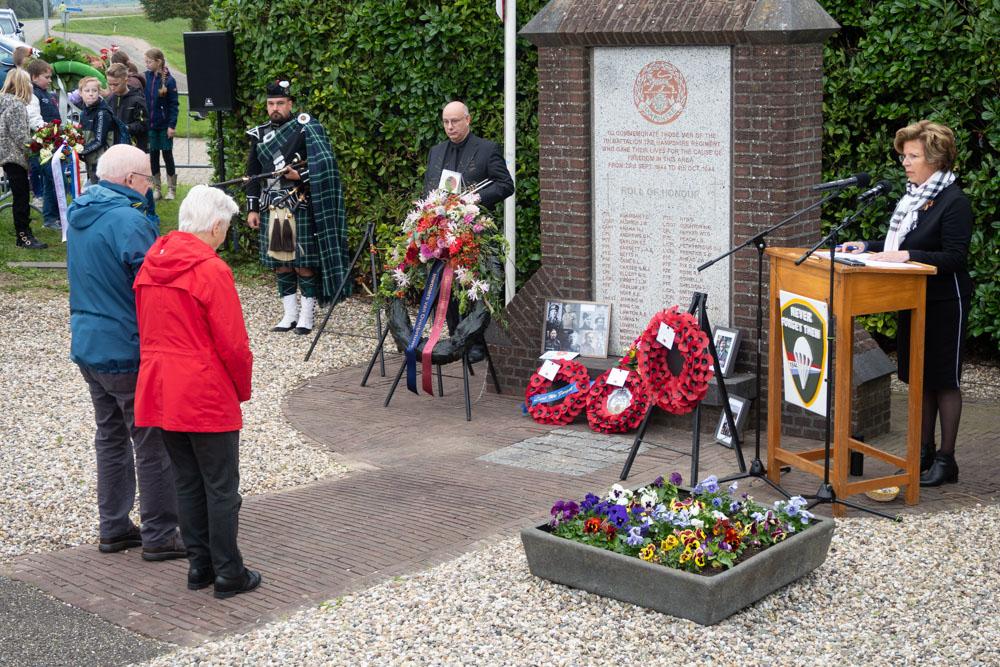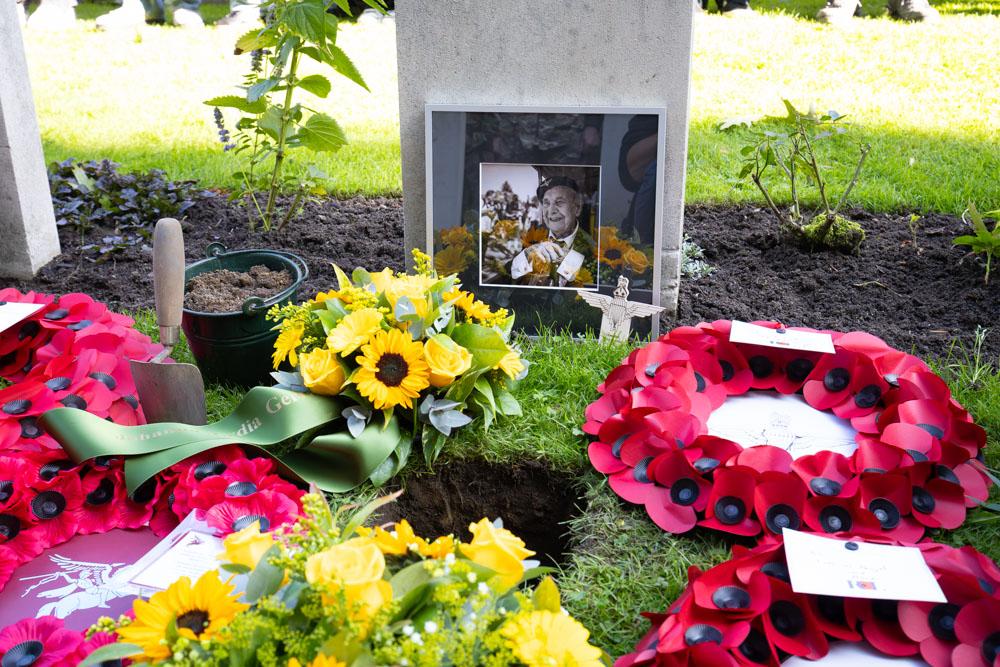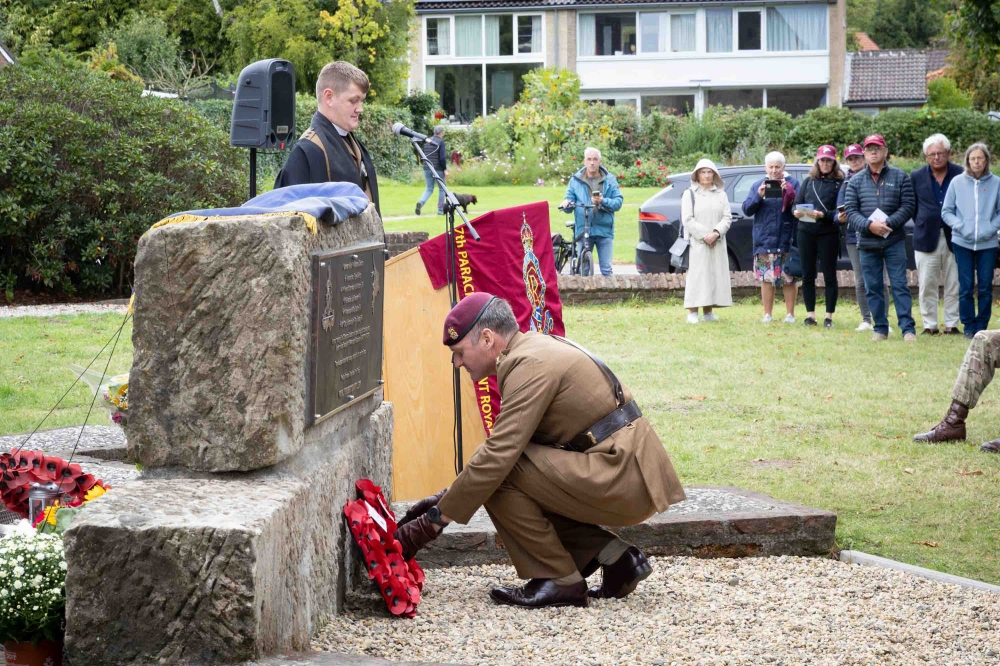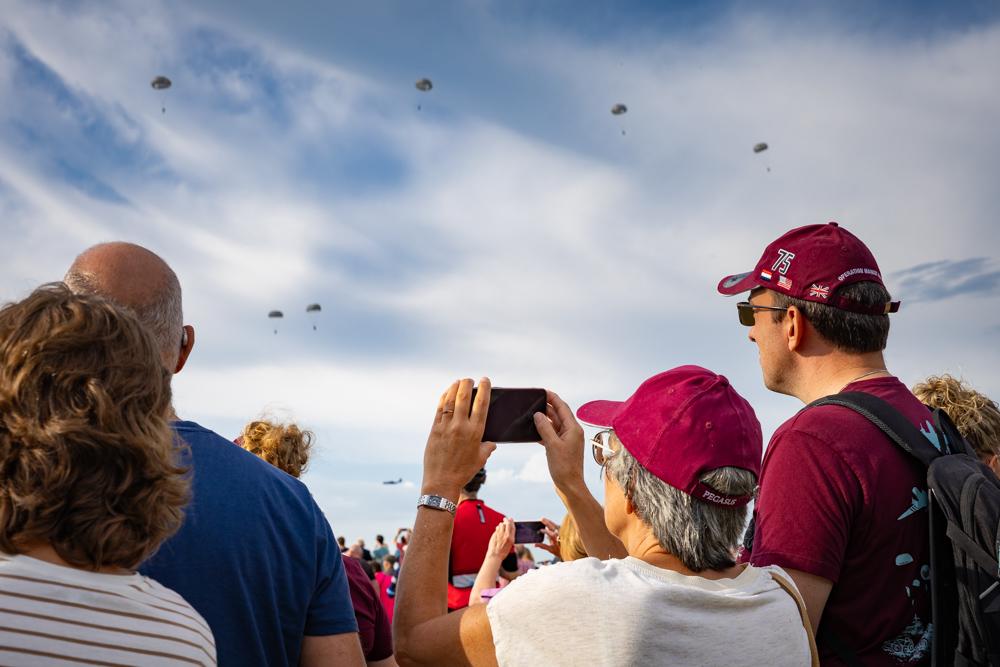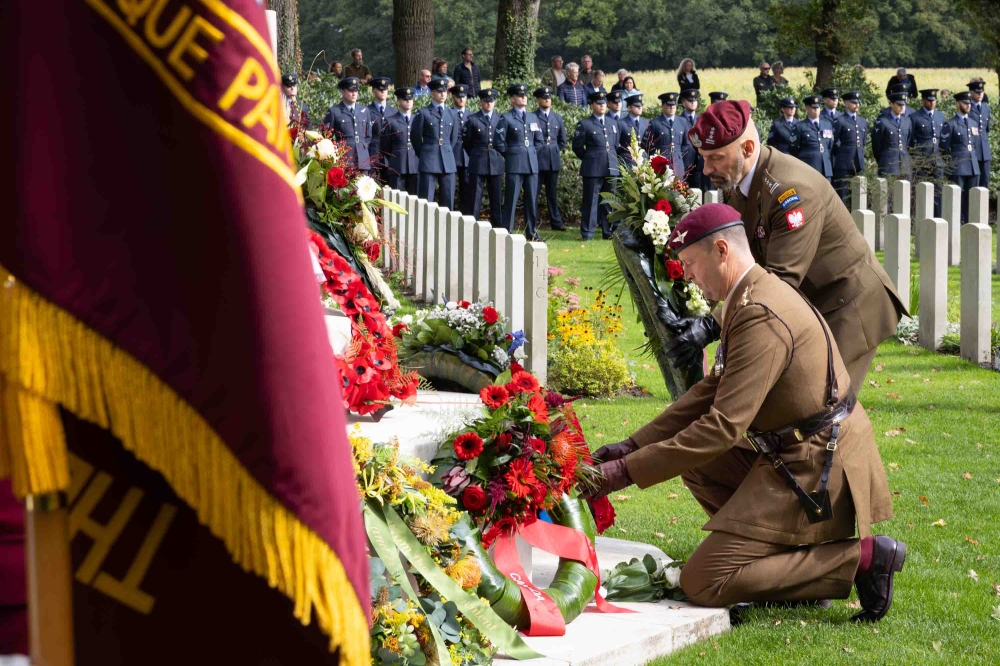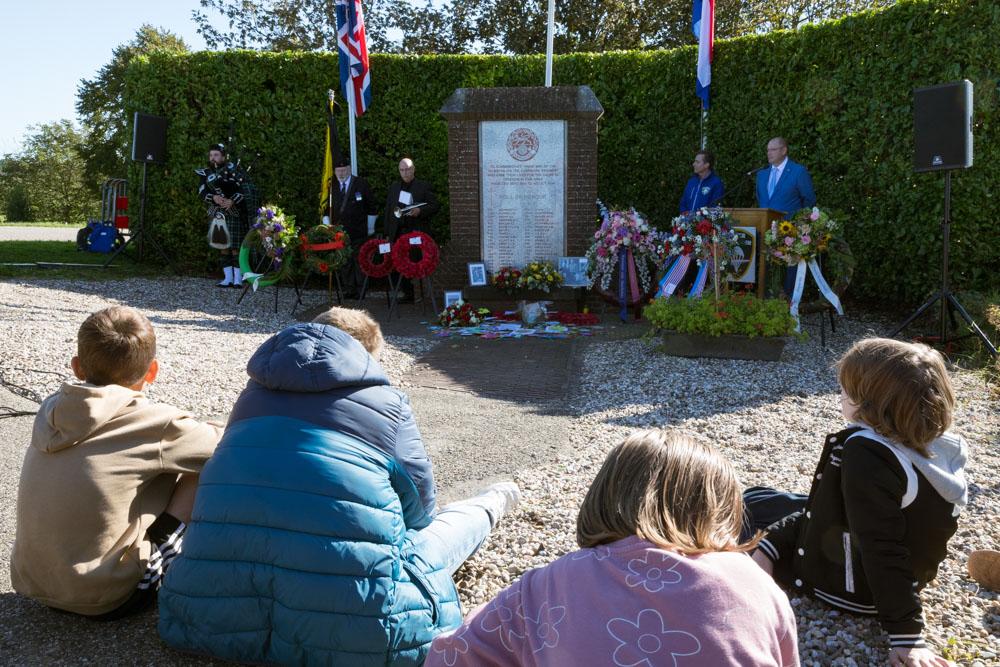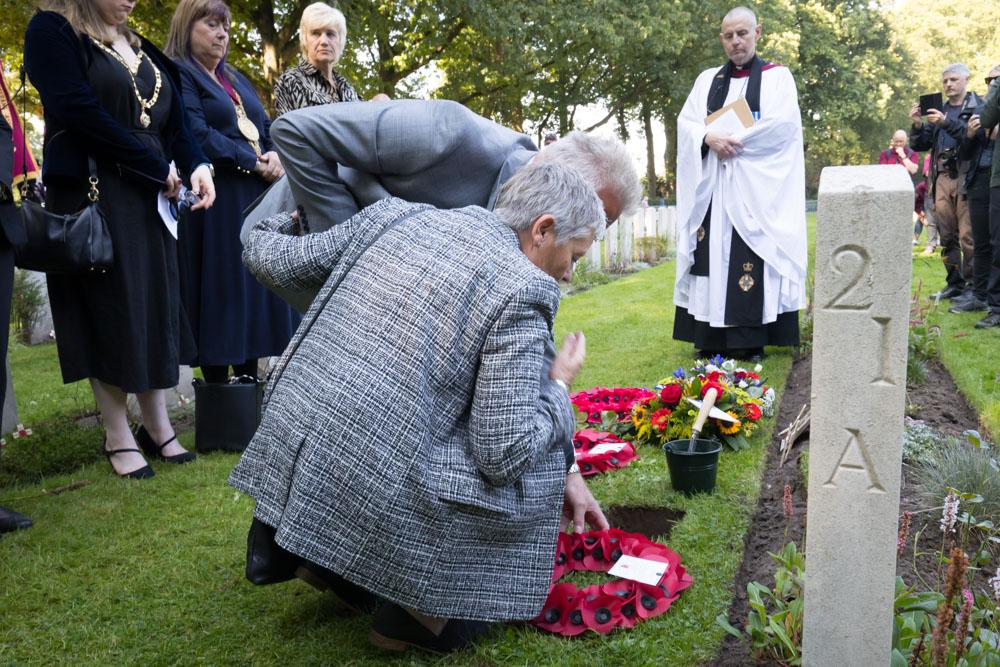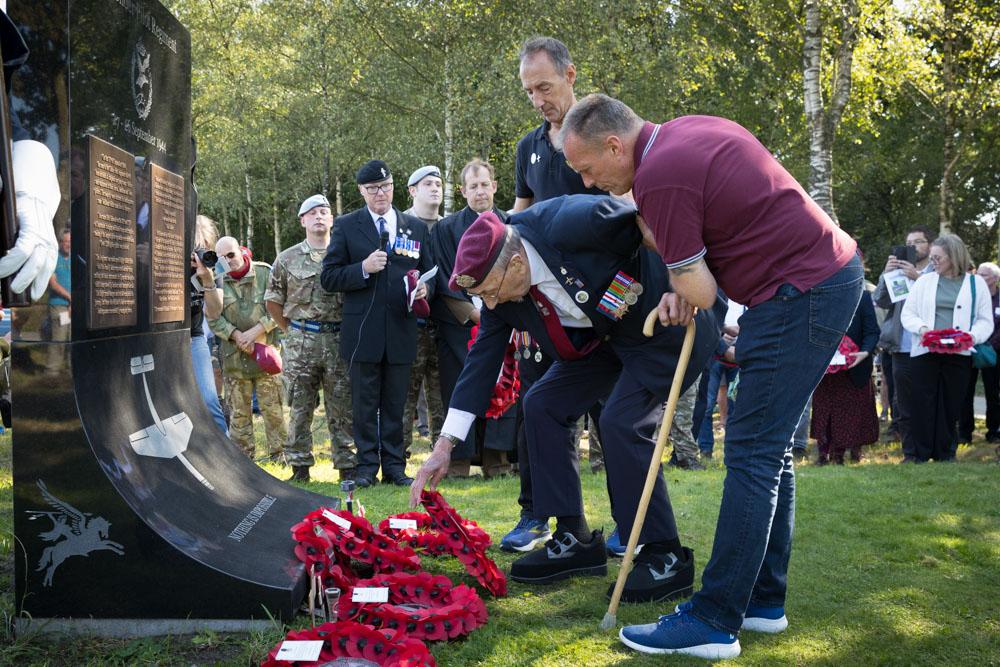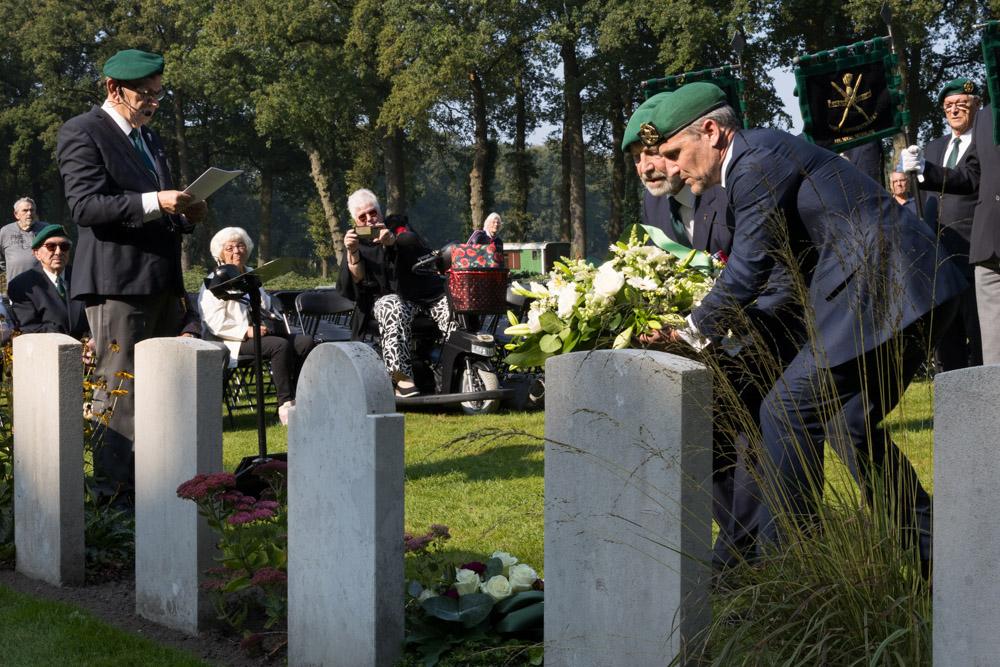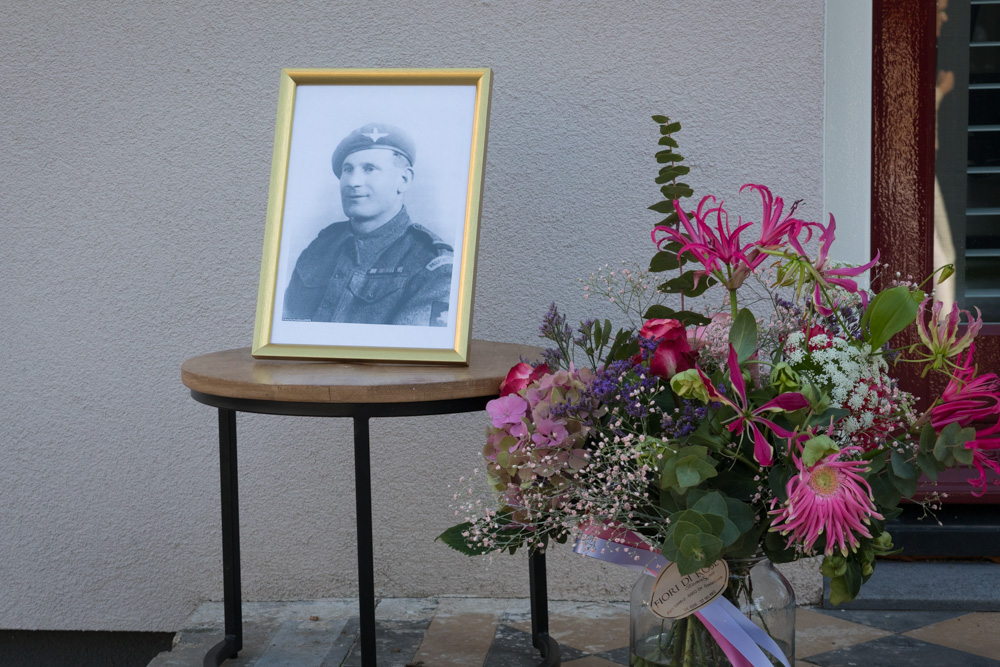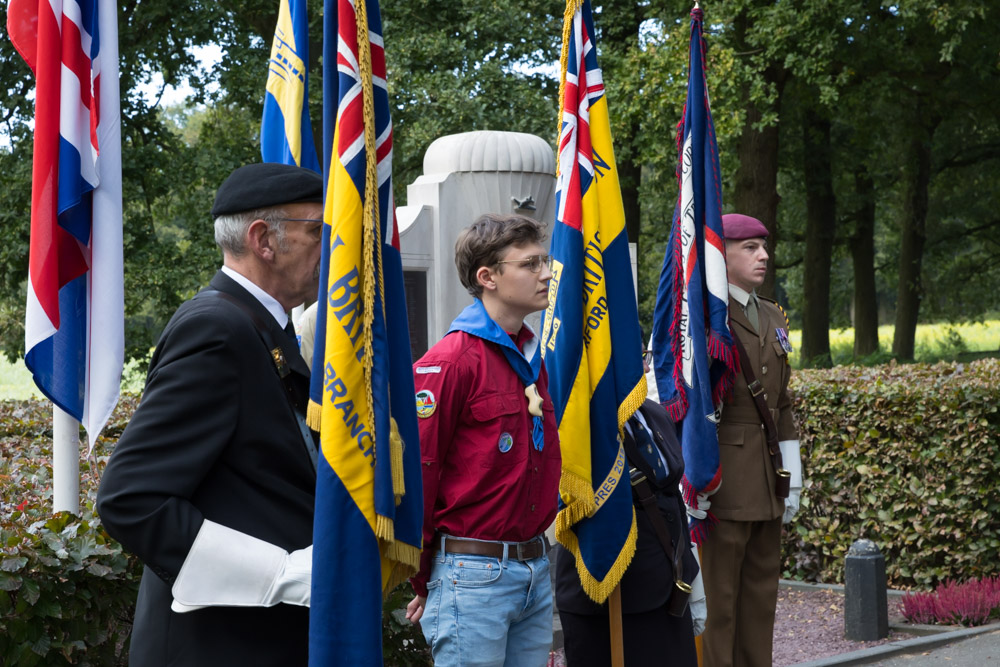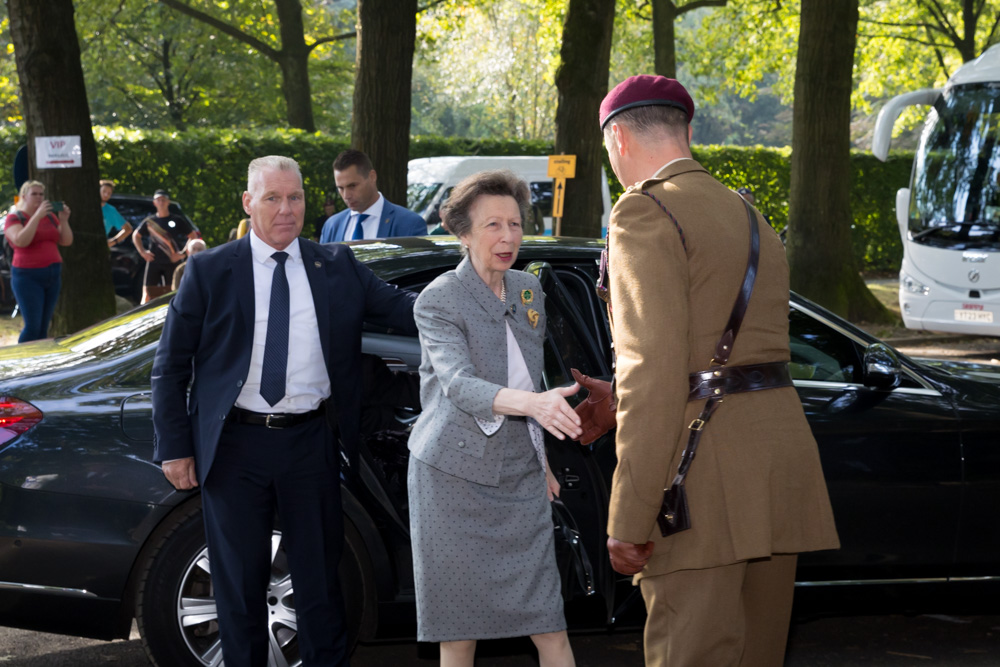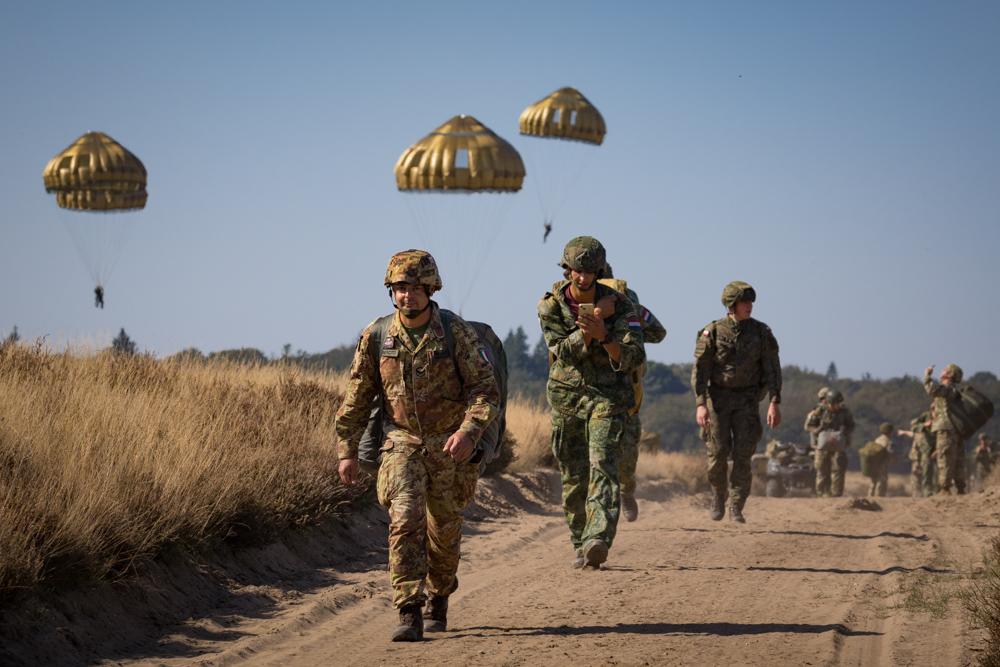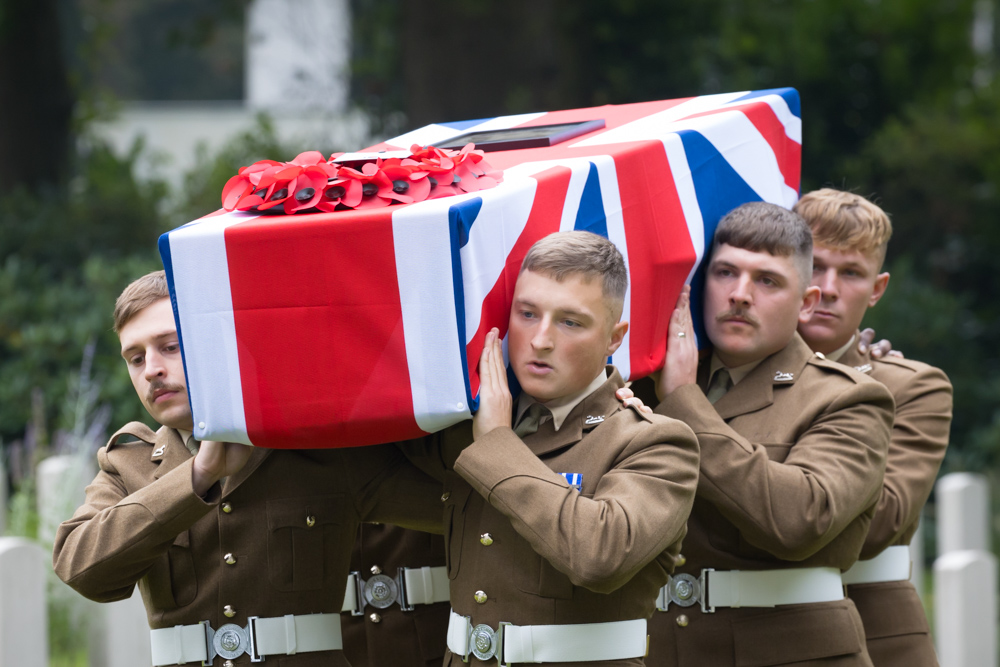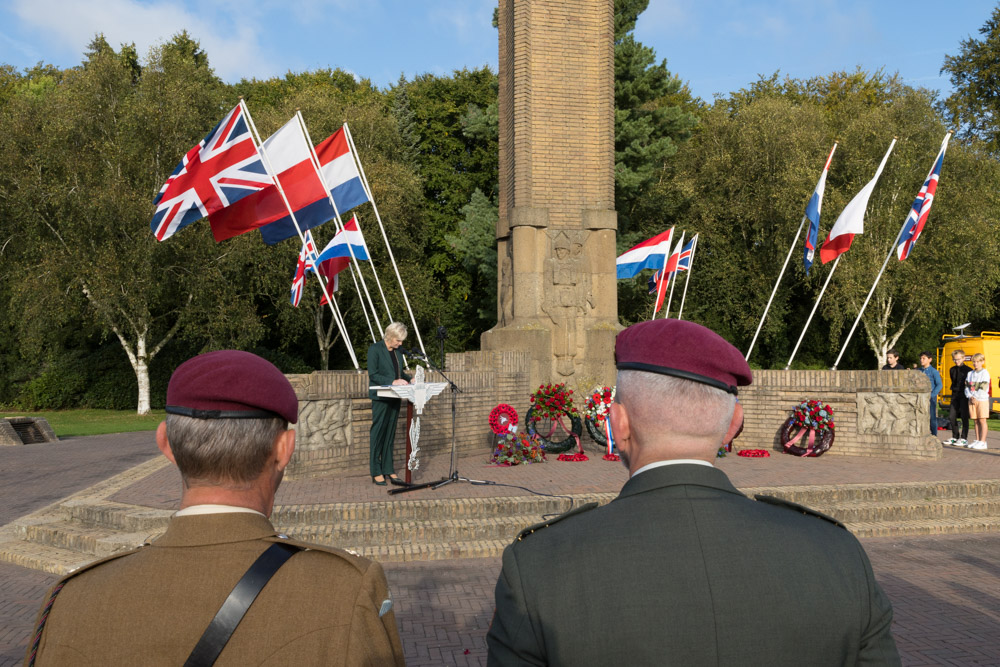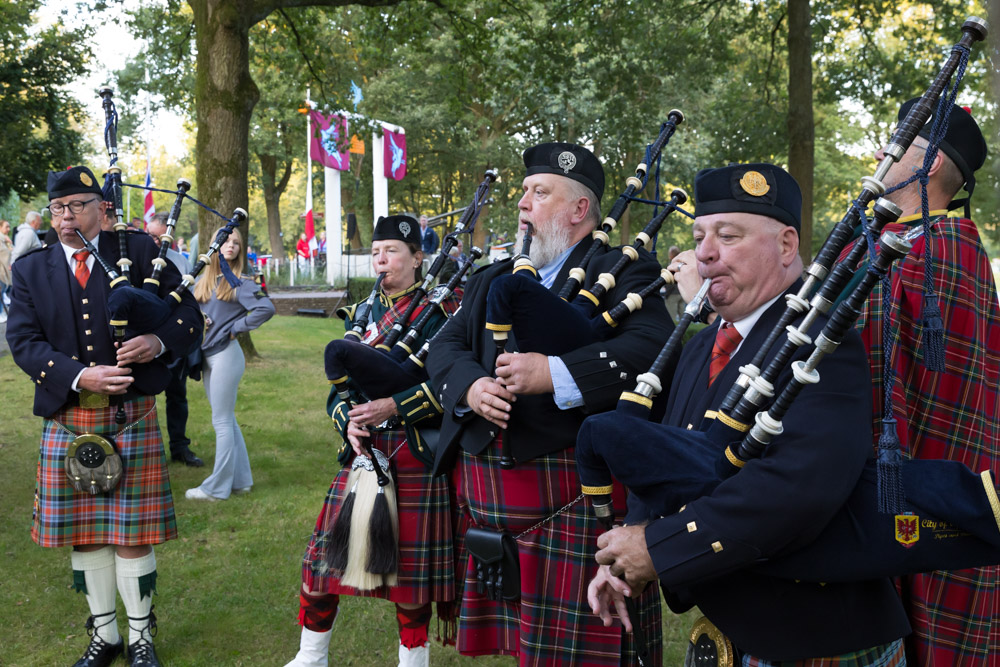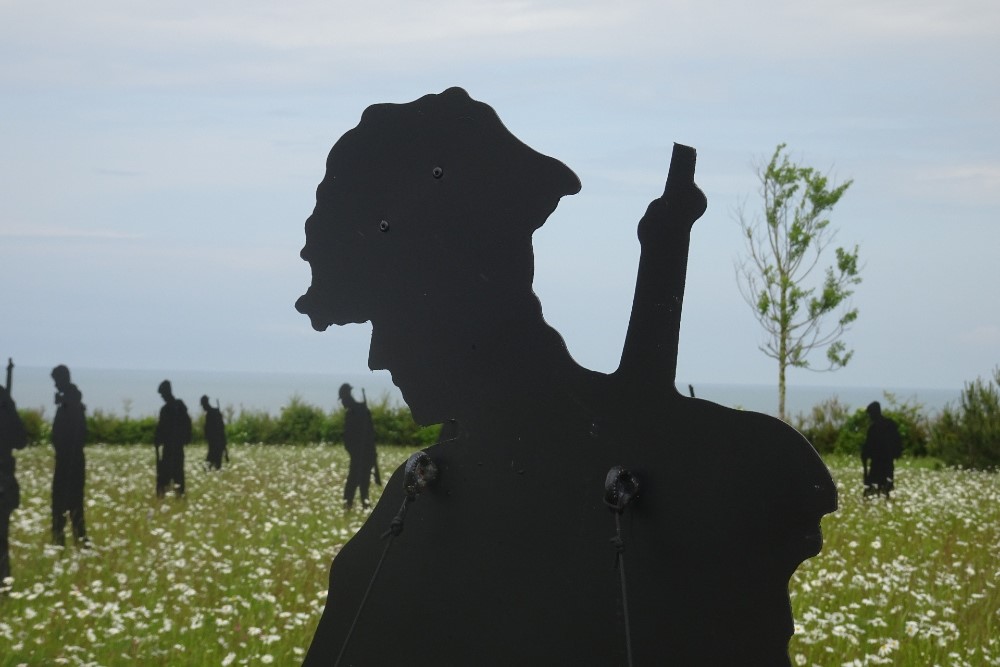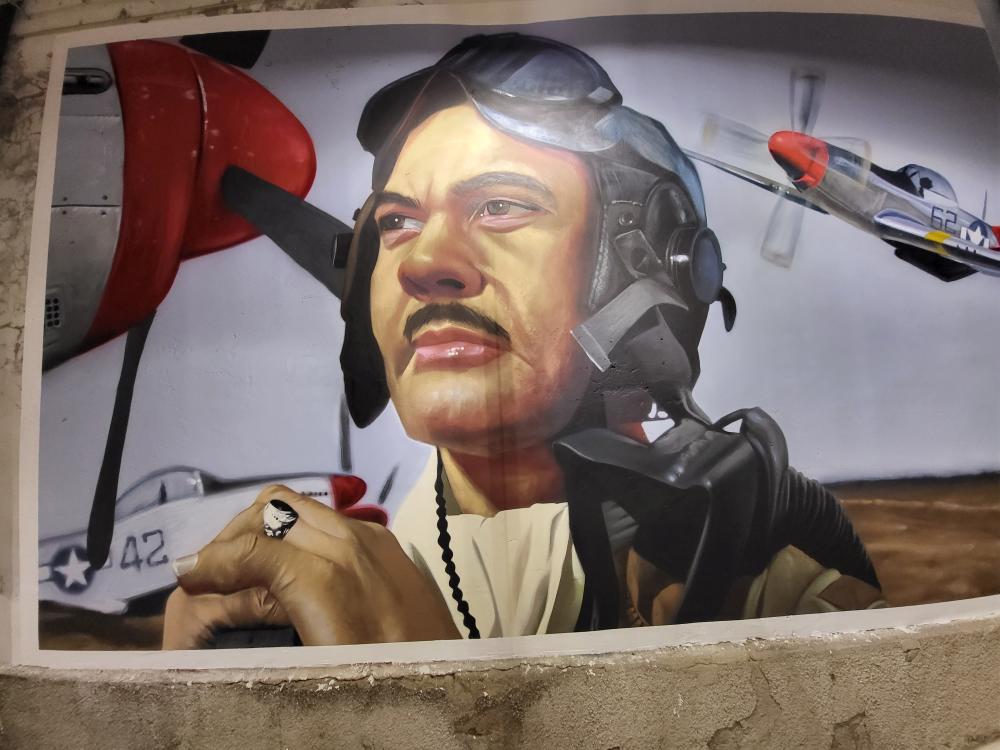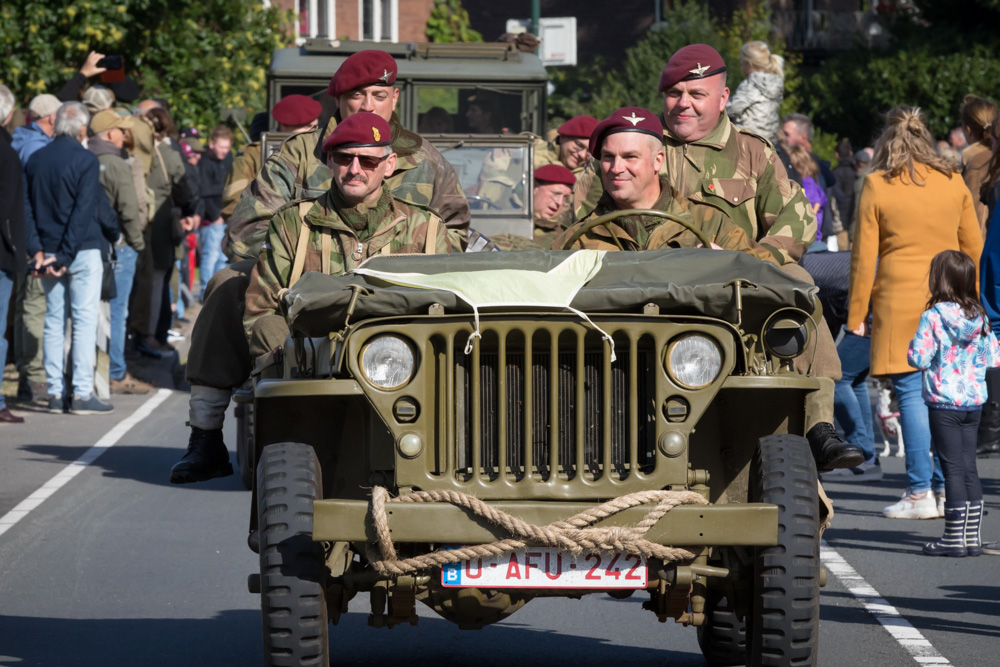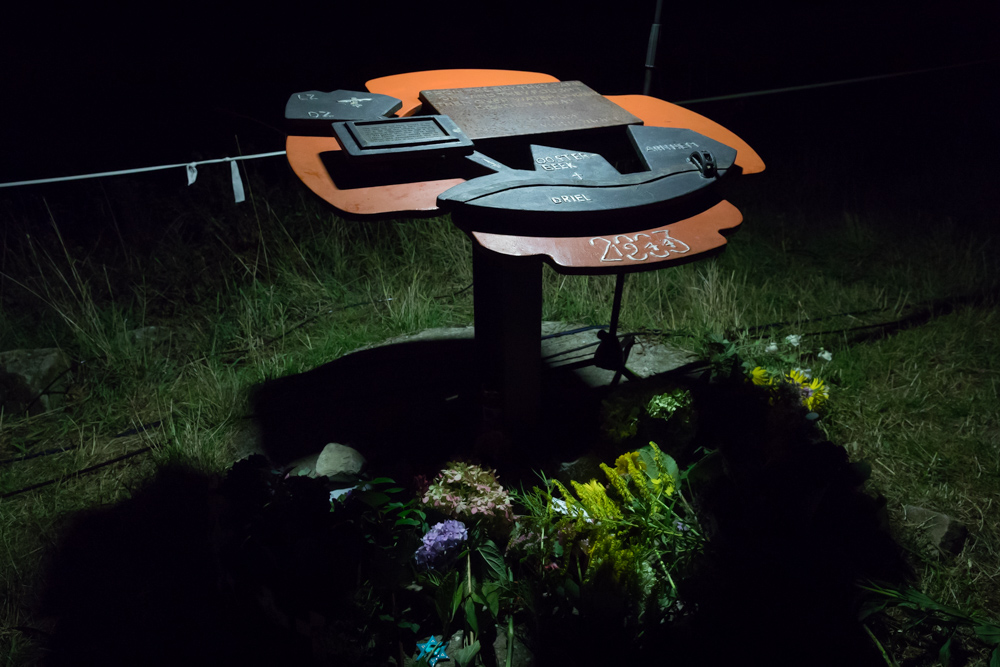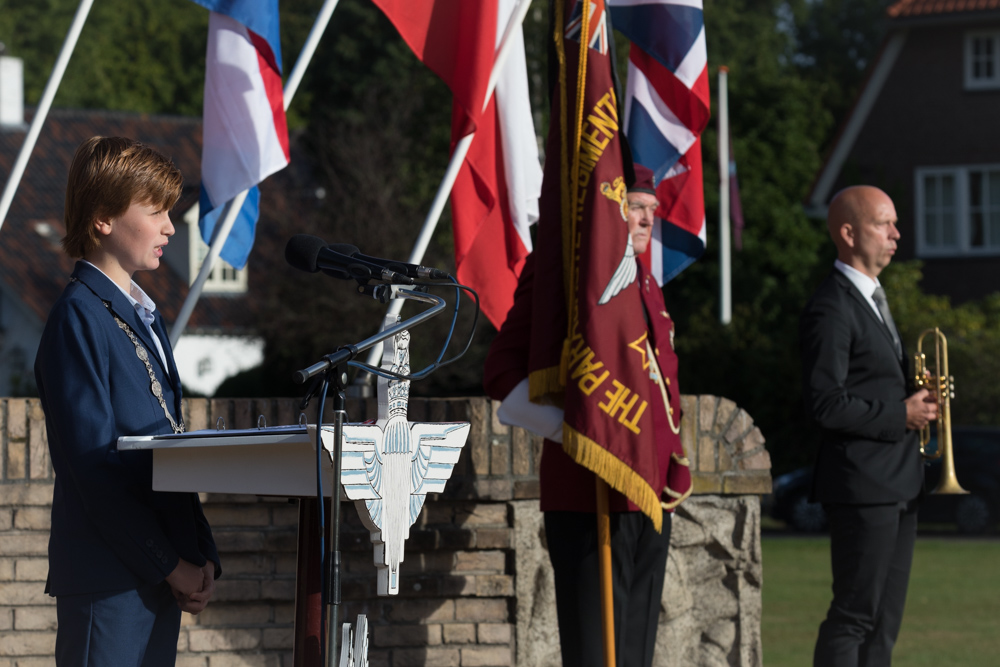Photo report commemoration Wiltshire memorial
After the Battle of Arnhem was lost in September 1944, the fighting continued south of the Rhine. Heavy losses were suffered in the process. On October 1, the annual commemoration took place at the memorial.
Amazon Books (EN)
Help TracesOfWar.com by buying books via this link. It won't cost you anything extra.
Photo report Ounveiling Plaque 'Gunners within 1st Airborne Division'
On Friday, September 19, 2025, the ashes of Corporal William Ronald Bill Larder were interred at the Airborne Cemetery in Oosterbeek. Bill had passed away earlier that year. He was not only the last veteran of the 11th Battalion of the British Parachute Regiment, but also the last surviving member of the entire 4th Parachute Brigade that took part in the Battle of Arnhem.
Photo report unveiling Plaque 'Gunners within 1st Airborne Division'
On Sunday, September 21, 2025, a plaque was unveiled at the Old Church in Oosterbeek for the Gunners within the 1st Airborne Division. This happened during a commemoration organized by the Airborne Gunners Trust of the Royal Horse Artillery.
Photo report Airborne commemoration Driel
On Saturday, September 20, the annual commemoration was held in Driel for the commitment and the victims of the First Independent Polish Parachute Brigade during the Battle of Arnhem. This year was an especially remarkable occasion as the British government has explicitly given the Polish parachutists the recognition they deserve. This finally does justice to the men who jumped here on Sunday, September 21, 1944. This was done during the commemoration with the unveiling of a plaque by the defense ministers of Poland, the United Kingdom, and the Netherlands.
Photo report Airborne Landing and Commemoration
On Saturday, September 20, the Airborne Landing and Commemoration took place at Ginkel Heath near Ede. Due to the good weather in the morning, the turnout was large. After jumps from a Dakota by Parachute Group Holland, the first mass drop followed along with a demo by the Royal Netherlands Air Force Historical Flight with two Harvards. A group of veterans from World War II was present at the commemoration. In addition to some British veterans, 100-year-old American veteran David Marshall was also a guest.
Photo report Airborne Memorial Service Oosterbeek
On Sunday, September 21, the annual Memorial Service was held at the Airborne Cemetery in Oosterbeek. Several World War II veterans were present at this commemoration, including American David Marshall and Brit Geoff Roberts. Geoff is one of the last surviving veterans of the Battle of Arnhem. He laid the final wreath of this commemoration. 900 flower children were present at this commemoration.
Commemoration 7th Battalion the Hampshire regiment
After the Battle of Arnhem was lost on September 1944, the battle south of the Rhine on 'The Island' continued. There are several monuments to the British and American units that suffered major losses. The commemoration for the 7th battalion of the Hampshire Regiment was on October 4 2024.
Photo report interment of ashes Arnhem veterans
At the Commonwealth War Graves Cemetery in Oosterbeek, also called the Airborne Cemetery, veterans of the Battle of Arnhem can have their ashes interred after their death. On Friday, September 20, 2024, there were solemn ceremonies in which the ashes of Bill Williams of the 3rd Battalion of the Parachute Regiment and of Joe Mawdsley of the 1 Border Regiment were interred.
Photo report Commemoration Glider pilots memorial Wolfheze
About half of the soldiers of the British 1st Airborne Division who fought in the Battle of Arnhem were paratroopers. The remaining men came by glider. These gliders were flown by Glider Pilots. These were well-trained soldiers who fought after the landing, including defending the perimeter in Oosterbeek. The Glider Pilots of the Battle of Arnhem suffered heavy losses. It was therefore good that a memorial for their regiment was unveiled at the Glider Landmark in Wolfheze in 2019. A commemoration was held here on Friday, September 20, 2024.
Photo report commemorating commandos at the grave of August Bakhuis-Roozeboom
Every year, Dutch commandos hold a short commemoration at the grave of August Bakhuis-Roozeboom at the Airborne cemetery in Oosterbeek. Commando Bakhuis Roozeboom of No. 2 (Dutch) Troop was one of twelve Dutch commandos attached to the British 1st Airborne Division during the Battle of Arnhem. On September 19, 1944, Bakhuis-Roozeboom was killed when the Jeep he was in was struck at Oosterbeek Laag station.
Photo report unveiling memorial plaque Albert Willingham
On September 20, 2024, a plaque was unveiled at the house at Annastraat 2 in Oosterbeek in memory of soldier Albert Willingham. On September 20 and 21 1944, this house was the headquarters of the 10th battalion of the Parachute Regiment that defended this part of the Oosterbeek perimeter. Civilians and soldiers took shelter in the basement. When a German soldier threw a hand grenade into the cellar, soldier Albert Willingham protected the civilians by shielding them by standing in front of the hand grenade. Albert was killed and was buried shortly afterwards in the garden of this house. After the war he was reburied at the Airborne cemetery in Oosterbeek.
Photo report Airborne Memorial Service Oosterbeek
The Airborne Memorial Service was held this morning at the Airborne Cemetery in Oosterbeek. It was very busy because of the 80th anniversary, the nice weather and the royal visit of Her Royal Highness The Princess Royal from England.
Photo Report Two funerals at the Airborne Cemetery in Oosterbeek
On Wednesday, September 18, 2024, two soldiers who fought during the Battle of Arnhem were buried at the Airborne cemetery in Oosterbeek: Private Moon and Lieutenant Anderson. Two British soldiers were buried with military honors in Oosterbeek 80 years after they went missing.
Photo Report Airborne Commemoration Oosterbeek
On the morning of September 17, the annual commemoration took place at the Needle memorial in Oosterbeek. It is exactly 80 years ago that the first Airborne soldiers landed on Dutch soil for Operation Market Garden. Due to the anniversary year, there are more events and significantly more visitors are expected.
Photo Report Standing with Giants British Normandy Memorial
The British Normandy Memorial inaugurated on June 6, 2019, the 75th anniversary of D-Day, can be found just outside the village of Ver-sur-Mer. From this spot one overlooks Gold Beach, one of the two beaches where British troops landed on June 6, 1944 (D-Day). On the columns of the memorial are listed the names of 22,442 British- and British-commissioned soldiers who fell in Normandy between June 6 and August 31, 1944.
Photo report inauguration of the Tuskegee Airmen monument near Ramitelli, Italy
BY SAMUEL DE KORTE - On 16 July 2023, a monument was unveiled for the Tuskegee Airmen. Accompanying this event, a mural was unveiled, a presentation was given about the many local army air force bases, and a documentary was shown about the Tuskegee Airmen. All these events were to honor and celebrate the Tuskegee Airmen.
Photo Report Race to the Bridge
On the Saturday in the weekend in which the Battle of Arnhem is commemorated, the Race to the Bridge will take place in the afternoon. With original vehicles, a long procession departs from the landing areas at Renkum to the Frost Bridge in Arnhem. The end point is at the Airborne Museum in Oosterbeek.
Photo report commemoration at the Engineers Monument and Silent Tour White Ribbon Mile
When on 20 September the British 1st Airborne Division had to give up the positions at the Rhine bridge in Arnhem, they withdrew to the 'Perimeter' in Oosterbeek. This was a bridgehead of several square kilometers on the north bank of the Rhine. The idea behind this was that reinforcements could be transferred across the Rhine. After a few days it turned out that the perimeter could no longer be defended. On September 25, 1944, General Urquhart was ordered to withdraw the troops across the Rhine. The operation was codenamed: Berlin.
Photo report Commemoration Airborne memorial de Naald in Oosterbeek
On Friday 16 September the commemoration was held at the Airborne Memorial de Naald in Oosterbeek. By default, this ceremony is on September 17, but because that date fell on a weekend this year, this year it was moved to Friday.
Latest news
- 03-10: Photo report other Airborne commemorations and events 2025
- 01-10: Photo report commemoration Wiltshire memorial
- 30-09: Photo report other Airborne commemorations and events 2025
- 26-09: Photo report Ounveiling Plaque 'Gunners within 1st Airborne Division'
- 25-09: Photo report unveiling Plaque 'Gunners within 1st Airborne Division'
- 24-09: Photo report Airborne commemoration Driel
- 23-09: Photo report Airborne Landing and Commemoration
- 22-09: Photo report Airborne Memorial Service Oosterbeek
- 23-06: Keeping the memory of the trails to freedom alive
- 12-04: Understanding the German side of the fighting in Normandy
